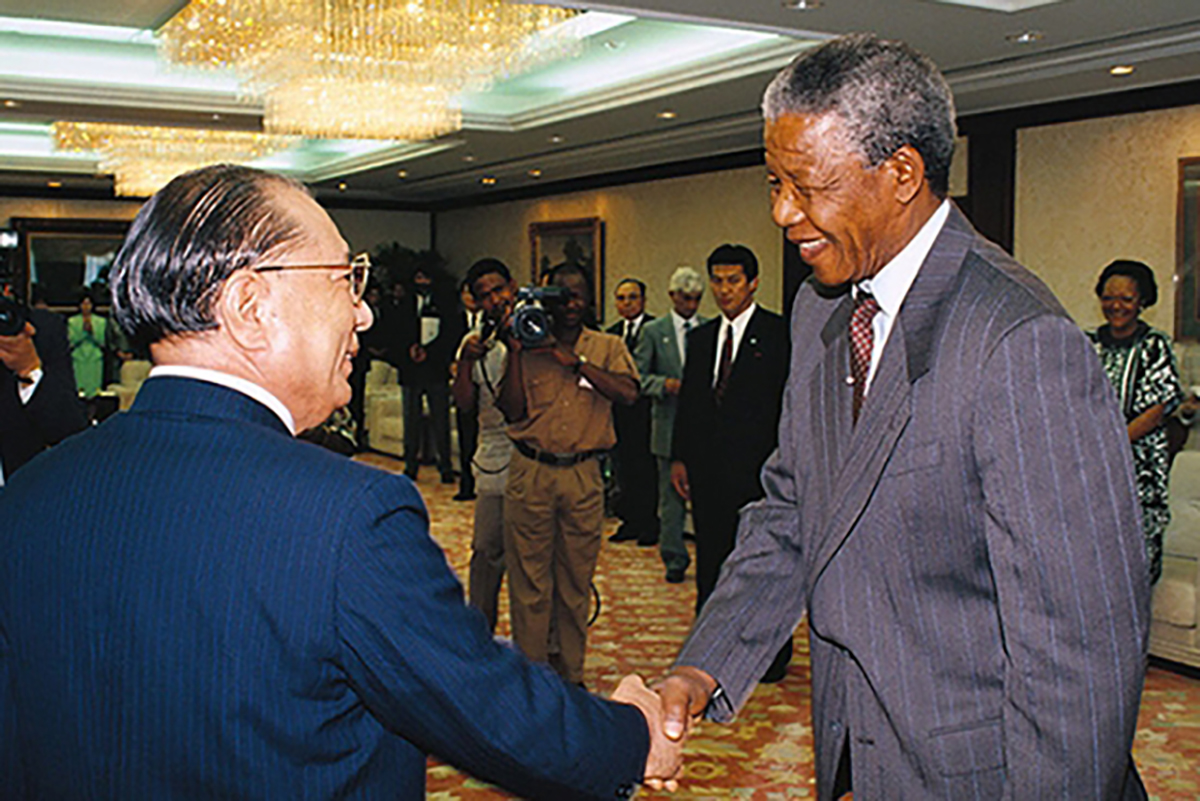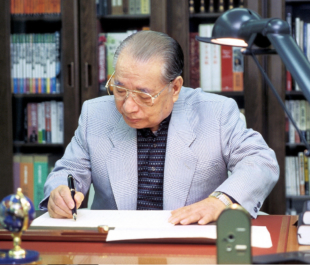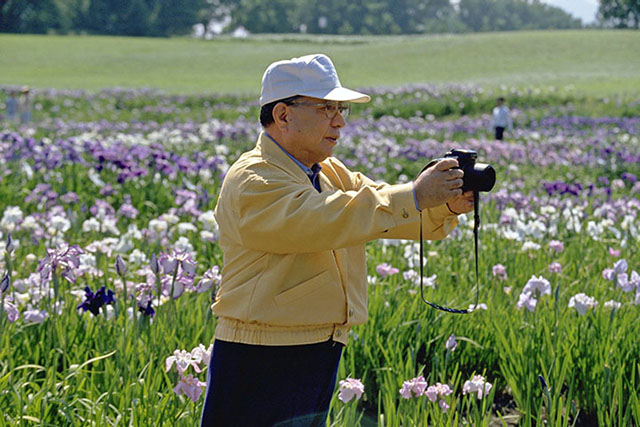In the New Human Revolution Volume 22, Currents chapter, there was an episode on Shinichi attending a Convention and spoke to a man who had taken time off to support the convention. He told the man that:
"There are many reasons for events like this and other Soka Gakkai activities, but from the perspective of the individual, they provide opportunities to challenge, polish and strengthen ourselves - to carry out our human revolution. Precisely because of our Buddhist faith and practice, and because we are busy, we need to work with even greater efficiency and do a good job. By rising to that challenge, we can become better people. That's why Soka Gakkai activities and events are opportunities to polish ourselves as human beings."
In another episode, while he was asking the members about their jobs, Shinichi approached one young man who had quit his job to help prepare for the convention. The young man said with a dissatisfied expression: "The pay wasn't very good, and they didn't recognise my abilities. My bosses said I had a bad work attitude and complained about me all the time. I'm convinced that I will be able to find a better job through the benefits gained from chanting Nam-myoho-renge-kyo very hard and doing my best here at the convention."
Shinichi's face clouded over. He knew he had to tell this young man the true meaning of faith.
"Maybe you had good reasons to quit your job, but your attitude is wrong.
Of course, it's important to chant and do your best in Soka Gakkai activities. But if you only focus on your Buddhist practice without making an honest effort at your workplace, you're just escaping from reality. So long as you have that attitude, the results will be the same, no matter where you work.
Shinichi didn't want members to lapse into an easy going, mistaken view of their faith. Nichiren Buddhism is a philosophy of human revolution, and it provides a practice for forging and polishing our lives so that we can be strong and wise, so that we may rise to every challenge that life presents and triumph over it.
"Now, that's the right attitude. You'll never win a swim meet just through your Buddhist practice. Buddhism is reason. A Buddhist doesn't simply pray to win without making any effort. If that was Buddhism, it would only teach people to be lazy and corrupt."
The youth looked at Shinichi intently and listened carefully.
"As a Soka Gakkai member, "Shinichi continued, "you need to work harder than anyone else at your job and, to become as efficient and productive as possible, study and think hard. Faith and prayer enables us to bring forth a strong life force and the necessary wisdom to succeed in the endeavour.
Every job demands not only hard work but also presents a variety of other challenges, such as difficulties with relationships. But your job is a place where you can polish and perfect yourself as a person."
It's very important to give it your full effort, become the top performer in your workplace and win the trust of those around you. This will improve your performance and reputation, and you'll earn a raise in salary. And if that were to occur, you would regard your workplace as the most optimum.
"During Gongyo each morning, you should pray with determination to do your best at your job that day, become a victor in your workplace, and demonstrate the power of your Buddhist faith, That's the key to fully manifesting your greatest strength and wisdom. That's the Soka Gakkai spirit."
:
Of course it is not easy, but it is not impossible either. Just as Sensei teaches, if we want to perform well, all of us must have the right attitude.
If I am the WD who is not so good with my steps, I will practice harder and determine to be the best performer and win the trust of my fellow participants. If I am the MD who is always late or absent, I will do my best and determine not to be late or absent so that I will not let my fellow participants down.
No matter how the dance steps may change and how challenging it is, I must determine to make good use of this Chingay platform to do my own human revolution, and I must do my best in my role, become a victor, and prove the power of my faith.
We must understand that a successful performance requires the cooperation, commitment and dedication of every performer. Now there are about 3 weeks left to the actual show, let's do our best together and encourage each other along the way. If there are shortcomings, make good, and if there are areas that we have done well, perfect it. I hope all of you will do your very best in the remaining training session and rehearsals and advance together in itai-doshin to present a perfect and excellent performance on the actual day.
Is this ok? Thank you.



